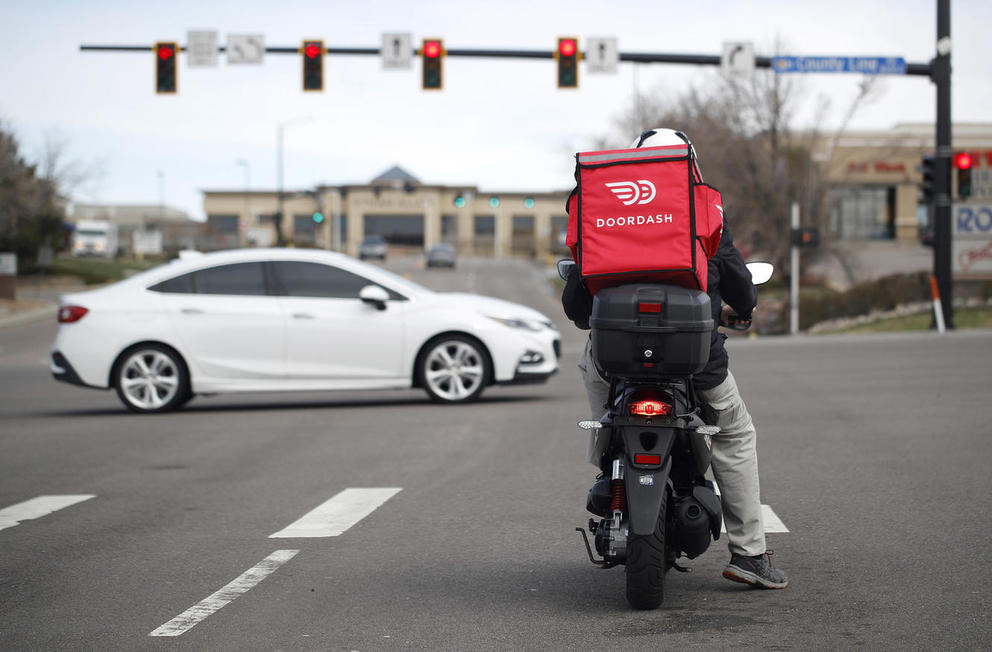With the end of the city’s emergency order last October, those temporary benefits are set to expire on April 30. The council is considering making those benefits permanent and giving them to more people.
On March 20, councilmembers voted 3 to 0 to move the proposed legislation out of the Finance and Housing Committee, with Councilmembers Teresa Mosqueda, Lisa Herbold and Andrew Lewis voting in support and Alex Pedersen and Sara Nelson abstaining.
“When this body provided basic sick time for gig workers at the beginning of the COVID pandemic, it changed the lives of drivers,” said Drivers Union president Peter Kuel, whose organization represents Uber and Lyft drivers across Washington, at a March 15 committee hearing. “It allowed drivers to keep themselves and their families safe and healthy without sacrificing their ability to pay rent and put food on the table. … No workers should be forced to choose between their livelihood and their health.”
If the legislation passes, app-based workers providing services full-time or part-time in Seattle would be eligible for paid leave for doctor’s appointments, recovery from an illness or injury, preventative care, care of a family member or for safety reasons related to domestic violence, sexual assault or stalking.
The proposal would apply to companies with 250 or more app-based workers worldwide. The temporary pandemic-era legislation applied to food delivery companies and transportation network companies such as Uber and Lyft. The permanent legislation includes a broader range of workers such as those doing laundry service and on-demand car washing.
Council central staff analysis showed that about a dozen companies were subject to the temporary measure, and roughly double that number would be required to provide paid sick and safe leave under the permanent ordinance.
The proposal would not apply to Uber and Lyft drivers, however, since they are now covered by a 2022 state law that sets base pay standards and provides sick leave for transportation network company workers. That state law preempts cities from passing their own workplace standards for transportation network companies.
The council’s proposal also excludes workers on marketplace network company apps including Rover and TaskRabbit, where companies don’t monitor worker time and mileage and workers can set their own rates and interface with prospective customers before accepting jobs.
Gig workers would accrue one day of paid sick leave for every 30 days of work they do on the app that includes work-related stops in Seattle (whether shopping at a Seattle-based store or making a delivery in the city).
Enforcement of the law would fall on Seattle’s Office of Labor Standards, which estimates implementation would cost $115,000 in 2023. There would be $148,000 in ongoing annual costs, most of which would pay for an additional full time employee to handle added enforcement. The office responded to more than 200 inquiries about the temporary paid sick and safe leave law since mid-2020, initiated nine compliance inquiries and investigations, and recovered $5 million in remedies for more than 30,000 workers.
“This is an industry that just continues to grow,” said Mosqueda, the bill’s lead sponsor. “We need to make sure the workers in this industry get access to those labor standards we know are so good for them and for the population’s health.”
Seattle has mandated since 2012 that all employers provide employees with paid sick and safe time. Gig workers are classified as independent contractors, however, and therefore not covered by the same workplace standards.
The Seattle City Council has taken several steps in recent years to provide some workplace protections to gig workers, despite their independent-contractor status. In addition to the temporary paid sick and safe leave measure in 2020, the council mandated a temporary hazard-pay increase for food delivery workers during the pandemic, which ended when the pandemic state of emergency expired.
In 2022 the council passed legislation establishing minimum pay standards and other workplace protections for gig workers. That legislation also excluded marketplace network companies such as Rover and TaskRabbit.
Labor representatives, including Service Employees International Union and Working Washington members along with a worker who uses the Rover platform, testified at the March 15 committee meeting, urging the council to expand the paid sick leave mandate to include marketplace network companies.
Councilmembers Herbold and Mosqueda introduced an amendment at the March 20 committee meeting that adds nonbinding language to the paid sick leave legislation, stating the council’s intent to take up separate legislation in the future that would provide paid sick leave to marketplace network company workers like Rover and TaskRabbit. The council would take up that new legislation only if it first expanded the minimum pay standards mandate to include those companies.
The amendment passed 3 to 2, with Nelson and Pedersen both voting no, saying they were concerned about the unknown impacts a paid sick leave mandate could have on the marketplace network companies. In turn, Pedersen and Nelson opted to abstain from voting on the broader legislation, with Pedersen explaining that he wanted to reach out to Seattle-based marketplace network companies before the full council vote next week.
No gig-economy companies testified about the paid sick and safe leave legislation at either the March 15 or March 20 committee meetings. Crosscut reached out to the Washington Technology Industry Association, but they declined to comment. The association opposed last year’s minimum pay standards legislation.
Working Washington has been organizing with gig workers for several years to craft a suite of workplace protection policies. Executive director Danielle Alvarado said she’s excited about the implications gig-worker paid sick and safe leave have for other workers operating outside the protections afforded to traditional employees, such as domestic workers, nannies and home care givers.
“I’m really proud of this particular policy and think it’s going to be great for the workers who are covered,” said Alvarado. “And it’s going to help us really continue to think about how to adapt other labor standards so other workers aren’t left behind.”
The full council is expected to vote on the legislation on March 28.
If the legislation passes, it would go into effect on May 1 for food delivery companies who’ve already been operating under the temporary paid sick leave program. For other app-based companies not covered under the pandemic-era mandate, the requirement would take effect Jan. 14, 2024, the same day the minimum pay standards legislation takes effect.
Get daily news in your inbox
This newsletter curates some of the most important headlines of the day from Crosscut and other news outlets.





